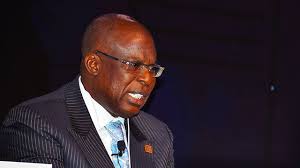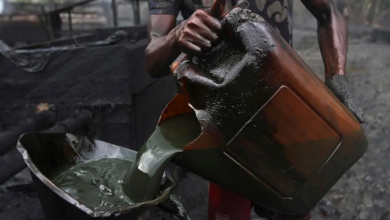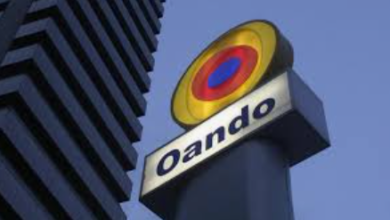Why petrol price keeps going up – FG

The federal government said Wednesday that the total removal of the subsidy on Premium Motor Spirit (PMS) was done in the best interest of Nigerian masses.
Addressing State House correspondents after a meeting with President Muhammadu Buhari in Abuja, Minister of State for Petroleum Resources, Mr Timipre Sylva, urged the citizens to exercise patience as the current hardship being experienced would soon be over.
He said the government can’t continue to subsidise petroleum products hence the decision for the full deregulation of the sector.
“Look at it, a situation where diesel has been deregulated long ago, a situation where kerosene has been deregulated long ago, and these are the fuels the poorest people in Nigeria interact with more. Why do I say that?
“If you want to transport food from the north to the south, it will be by trucks that are run by diesel, not with petrol. Those trucks that transport food from the north to the south are usually run by diesel.
“Kerosene is the preferred fuel at the lowest level of our society. These have been deregulated long ago. So, what is the problem with deregulation of petrol, which is mostly used by the elite?
“Let us be fair to this country, let us be fair to the poor people in this country. “If we have deregulated what they were using, then there is actually no reason why we should continue to subsidise petrol. I feel so.”
The minister while speaking on the latest pump price increase and the fact that it was no longer possible for the government to subsidize, said: “Let us first agree, that these are not the best of times not only for Nigeria but for the global community. What we have said over and over again as a government is that the government is no longer in the business of fixing pump prices, that is the meaning of deregulation and stepping back on subsidy. Yes we are very aware that this will result in some increase but why do we have to do this, because it is clearly impossible for the government to continue to subsidize. The money is not there now. Just take the example of our production levels, our crude oil production level was over 2 million barrels a day, today to comply with OPEC cut and quota, we have reduced production to 1.4 million barrels. Having reduced production to 1.4 million barrels, crude oil is also not selling at an optimal rate. Where do you get the money to continue to subsidize?
“I was just discussing with someone today that we just have to make a choice, if the government were to continue with subsidy, it means for example that at some point we may not even have money after subsidizing petrol to pay salaries. You have no choice. It is very clear that today things are not as they were before. The earnings of the government have reduced by 60 percent and what is happening in the oil sector reflects what is happening elsewhere. Our FIRS collection has also reduced because less oil is being produced, there is less activity in the oil industry which is driving the economy. So you find out it is a double jeopardy from all sides. I am telling you if Mr President could have continued with the subsidy he would have. But when you look at the facts before us, it is not possible and of course we are seeing some of the effects but I believe that at this point we are still trying to cross the first buck, we will get there, we will get used to it as Nigerians.
“…The only explanation for everything we have said is the country just could not afford subsidies anymore. It is unfortunate we are experiencing some of these things now. We will get by, I am sure when things stabilize our earnings begin to improve, we will begin to see the benefits of what this government has done.”When pressed to say what was responsible for the recent fuel pump price hike, Sylva, “I thought we’ve explained this over and over again and let us please listen to ourselves. Petrol is refined from crude oil, so petrol price is directly related to the price of crude oil in the market.
“So if I buy crude oil at a certain price and refine this month, if the crude price is low at the time, then my petrol price will become low because the feedstock from which I refined petrol was lower in price.
“If the price of crude oil goes up then it means the price of the feedstock has gone higher, it will also affect the price of the refined product and that is why you see that product prices are usually not static, it depends on the price of crude oil, which goes up and down. That is why we say deregulate so that as the price goes up or down, you will begin to go up and down as well at the pump.
“Before now we fixed it, which was not optimal for us as a country, so we said look, our earnings are not fixed because our earnings are dependent on crude oil price. If we fix it at this end then it becomes unsustainable at some point, so let us keep it floating so that if crude oil prices go up, then you’ll see a reflection of that, if crude oil prices go lower, you’ll see a reflection of that at the pump.
“Now what happened recently was because of the announcement of a vaccine for COVID-19 by Pfizer. With that crude oil prices went up a little bit. If you have been following crude oil prices you would have seen that crude oil prices went up a little bit, as a result of this announcement.
“So when crude oil prices go up a little bit, then you will see that it instantly reflects on the price of petrol, which is a derivative of crude oil. That’s why you see that there’s this movement and if we listen to ourselves, this is the same explanation we’ve been giving. Like when the pump prices came down, we reduced the pump price because it reflected, we saw that crude prices were lower, so we reduced the pump price when we deregulated. Then when the crude prices went up, it went up, when it comes down, it goes down. That is how it works
“So that is why you will be seeing this, go up and down in the market place. Now we have introduced the alternative fuel, which is gas because we feel that it is important for Nigerians to have another option, which will be cheaper,” he said.
Blueprint.ng





